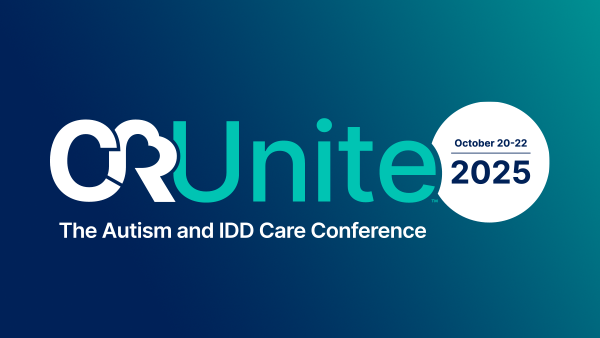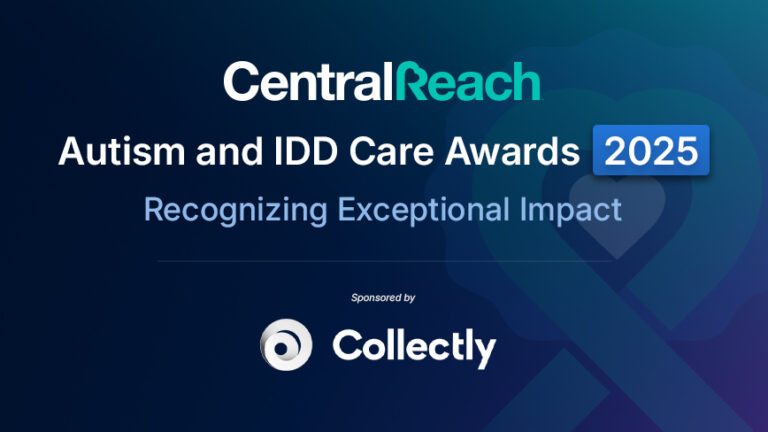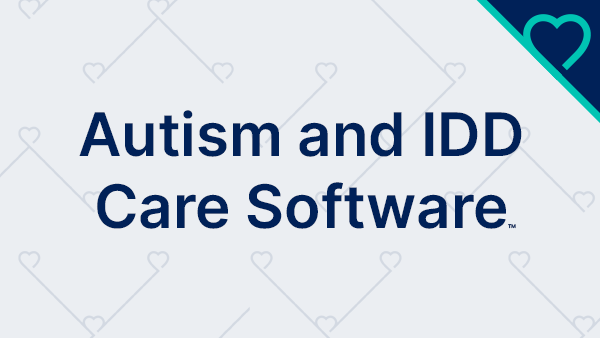Effectively supporting students with diverse disabilities in educational settings starts with a comprehensive assessment. Employing the appropriate assessments for students with autism to evaluate their strengths and needs is critical for creating a supportive environment where they can thrive. Implementing the most effective and relevant assessments enables educators to tailor goals, interventions, and teaching strategies to each learner’s unique needs. CentralReach, a leading special education software provider, emphasizes the importance of individualized assessment practices to foster student success.

Understanding Assessment for Students with Autism
According to the CDC, 1 in 36 children are diagnosed with autism spectrum disorder (ASD). 13% of children served under the Individuals with Disabilities Education Act (IDEA) qualify for special education services due to an autism diagnosis. This percentage has doubled since 2010 (National Center for Education Statistics). With increasing rates of autism, educators are tasked with supporting increasingly diverse educational and functional needs. Teachers and support staff must utilize assessments tailored to students with autism to evaluate and address skills relevant to the unique learning profiles and support needs.
A customized and comprehensive assessment process ensures that results are valid and reliable, empowering educators to develop relevant, individualized goals and strategies. Conducting holistic assessments helps IEP teams foster an environment where students with autism can thrive–not only in academics but also in communication, social, and functional skills.
You have likely heard the saying–If you’ve met one student with autism, you’ve met one student with autism. This common saying underscores the immense diversity within the autism spectrum. Autism is characterized by a broad range of symptoms and delays in social communication and interaction, as well as restricted and repetitive behavior, interests, or activities. The specific symptoms and support needs can vary substantially.
Because every student is vastly unique, educational teams, including teachers, therapists, caregivers, and specialists, should collaborate to conduct comprehensive autism assessments that consider learners’ needs across multiple domains, including:
- Academics and pre-academics
- Communication skills
- Social interactions
- Interfering behaviors
- Self-advocacy
- Emotional functioning
- Motor skills
- Daily living skills
- Sensory processing
- Vocational skills (for older students)

Exploring Autism Assessments
There are many different types of assessments for students with autism, including autism screenings, diagnostic assessments, functional behavior assessments, cognitive assessments, and adaptive behavior assessments. We’ll briefly touch on each of these. It is important to note that most of these are not exclusive to children with autism. However, they are commonly used to assess students with autism in ABA and special education.
Screening tools–Screeners, such as the Modified Checklist for Autism in Toddlers (M-CHAT) and the Ages and Stages Questionnaire (ASQ), are used by early childhood educators and medical providers to identify children at risk for autism and other developmental delays. If the screener identifies a child at risk for autism, the provider refers the child for a comprehensive diagnostic evaluation.
Diagnostic assessment–Diagnostic evaluations encompass a more thorough assessment process utilizing multiple tools to ensure an accurate and reliable diagnosis. During diagnostic evaluations, diagnosticians use assessment tools like the Childhood Autism Rating Scale (CARS), the Vineland Adaptive Behavior Scale, and the Autism Diagnostic Observation Schedule (ADOS). The results of these assessments inform the diagnostician of whether the child meets the diagnostic criteria of autism spectrum disorder.
Functional Behavior Assessment (FBA)–Behavior analysts, psychologists, and other qualified professionals conduct FBAs to identify the function of a student’s interfering behaviors. FBAs include various indirect tools, including interviews, checklists, and rating scales. They also include direct methods, such as direct observation and ABC data collection. FBAs are a vital prerequisite for developing an individualized Behavior Intervention Plan (BIP) to address the student’s behavioral needs.
Cognitive assessments–Assessments such as the Woodcock-Johnson Test of Cognitive Abilities measure students’ intellectual abilities. These assessments evaluate cognitive functioning in memory, attention, problem-solving, and reasoning. Cognitive assessments can be beneficial for identifying learning disabilities and helping educators better understand their students' learning profiles. However, they have many limitations for use with children with autism. One major barrier is that autistic students' social, communication, sensory, and behavior challenges often make it difficult to administer cognitive assessments.
Adaptive behavior assessments–Educators and behavior analysts conduct adaptive behavior assessments to measure students’ functional skills in domains such as communication, social skills, self-advocacy, and vocation. The Assessment of Functional Living Skills (AFLS) and Assessment of Basic Language and Learning Skills-Revised (ABLLS-R) are two common adaptive behavior assessments for assessing a wide range of skills. These assessments help educators better understand their student's needs beyond academics.

CentralReach’s Commitment to Autism Assessment Tools
CentralReach is committed to supporting the efforts of special education teams in developing quality Individualized Education Programs (IEPs). Our dedication starts with offering comprehensive autism assessment tools and resources to facilitate an accurate and holistic understanding of every student’s unique needs.
CentralReach empowers educators with the tools necessary to develop individualized goals and interventions. CR Assessments offers numerous benefits, including:
- Assess 2,400 skills across multiple domains
- Assess skills relevant across a student’s journey from Pre-K to 12 and beyond
- Automatic assessment scoring
- A streamlined assessment-to-instruction workflow
- Robust reporting and analytics with actionable data
- Assessment sharing to gain insight from each member of the team)
Understanding ABA Assessments
Applied Behavior Analysis (ABA) is becoming increasingly common in schools nationwide. ABA in schools has many benefits, including offering additional support to meet the growing needs of students with autism and IDD.
Teachers and behavior analysts use ABA assessments to better understand each student’s unique journey, including their skills, needs, interests, and behaviors that interfere with their ability to succeed. Common ABA assessments include FBAs to inform BIP development and adaptive behavior assessments to inform holistic goal development. Preference assessments are another key ABA assessment that enables IEP teams to create an enjoyable and motivating educational environment.
Through ABA methodologies, like direct observation and data collection, ABA assessments provide a data-driven foundation for developing Individualized Education Programs and treatment plans. They are integral to comprehensive autism assessments to inform learning strategies and efficiently monitor educational and treatment outcomes.
Conclusion
With increasing rates of autism, IEP teams must be educated and trained to administer ABA assessments, including FBAs and adaptive behavior assessments. Tailored autism assessments are essential for identifying the unique strengths, challenges, preferences, and needs of each student. With a data-driven foundation for developing high-quality goals and individualized instruction, special educators can promote positive outcomes for students with autism throughout their educational journey and beyond.
Posted in Education, Special Education
You may also like...
Related information and stories
CentralReach Wins Best Healthcare Technology Deployment in 2025 Globee® Awards for Achievement
The company’s leading ABA and multidisciplinary EMR was recognized for empowering practices to address critical gaps in autism and IDD care FORT LAUDERDALE, Fla., July 1, 2025 – CentralReach, a…
Continue ReadingRedefining Documentation: How BASS Improved Session Note Workflows with AI
With AI summaries built into their EMR, clinicians spend less time typing and more time treating BASS ABA Therapy, a dedicated provider of best in class ABA services across Florida…
Continue ReadingDon’t Reinvent the Wheel: 5 Reasons to Skip a DIY EMR for Your ABA Practice
The ABA field has dramatically changed over the past decade. The systems that once worked well enough for clinicians and organizational leaders are no longer keeping pace with the rising…
Continue Reading





